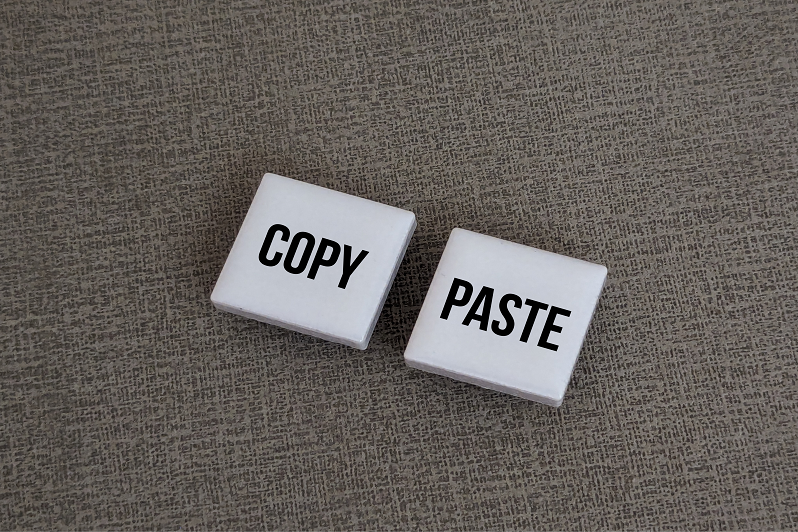Business operations and activities should be conducted legally in today’s highly competitive business environment to safeguard the brand’s entity and reputation. It is against the law to copy material that a person does not own. A person who owns a business may be subject to a variety of legal and corporate consequences. Furthermore, the government may restrict the owner’s or his Company’s items, resulting in consumer loss.
Plagiarism is not confined to writing pieces. It is commonly employed with writing works, research submissions, and academic papers. If someone has talked about something and you use it exactly as they said it, you are also committing Plagiarism. As a result, it is critical for all company owners, business professionals, and even public speakers to be aware of this issue.
What is plagiarism?
Plagiarism is the purposeful or accidental presentation of someone else’s words or ideas (claimed to be copyrighted work) as your own. Plagiarism happens when the Source of information or copyrighted work is not adequately acknowledged.
You may want to know: Has Someone Copied Your Online Content? Here’s What You Can Do.
Types of plagiarism
- Direct Plagiarism
Direct plagiarism, often known as verbatim or copy-paste plagiarism, is a type of content theft done on purpose and is unethical. The writing is copied word for word and pasted into the new piece, as the name implies. After that, the author tries to pass the information off as their own. Although a few words may be modified, this form of Plagiarism is far too obvious to be termed paraphrase. - Self- Plagiarism
Self-plagiarism is defined as the reuse of one’s own words from previously published publications. Since it does not constitute actual intellectual property theft, it can cause problems in scholarly publication. Self-plagiarism can refer to the publication of similar articles in two locations (sometimes known as “duplicate publication”), in addition to verbatim parts of the text. Furthermore, even if you’re only reviewing an old concept or a previously published observation, it’s great to practice properly crediting your earlier work. - Accidental Plagiarism
Plagiarism isn’t always done intentionally. When someone plagiarizes another’s work without crediting the Source, cites the Source incorrectly, or leaves off quote marks by accident, it’s still deemed Plagiarism. Plagiarism can be committed even if the absence or improper citation was unintentional. That is why it’s crucial to double-check any work and provide credit to the Source if in question. - Plagiarism based on Source
When there are false sources involved, this is referred to as this sort of Plagiarism. For instance, the writer may have two sources of information but only use one of them. When an author references a non-existent or erroneous source, this is another type of source-based Plagiarism. - Paraphrasing Plagiarism
When writers plagiarize, they generally duplicate or steal a significant concept or a few critical aspects from another’s work. They add such information to their work and present it as their own, without appropriate acknowledgement, after utilizing specific synonyms and reorganizing the words.
It will not be deemed Plagiarism if the writer includes relevant citations, references, and credits. However, paraphrase Plagiarism occurs when a writer steals words, ideas, sentences, and not only that, but also when they translate material from another writer’s content, written in a different language, without adequately crediting, referencing, or attributing the Source.
You may want to know: Do Copyright protect Web Content?
How can plagiarism affect your business?
It takes longer for any firm to acquire or maintain a favorable reputation. Furthermore, a built-up reputation may vanish instantly with a single wrong move. Many firms have closed down in recent years due to unlawful copying or stealing of intellectual property (IP). People who replicate or steal your ideas for their advantage infringe on your intellectual property rights (IPR).
The following are some of the most severe negative consequences of Plagiarism:
- It can harm the reputation of your Company
The degrading of your brand image is undoubtedly one of the most severe effects of Plagiarism since your present consumers and prospects will no longer trust the material you post. A professional organization will constantly develop and distribute material that is relevant to the target audience. Still, if you don’t make an effort to maintain your content fresh, you’ll give the impression that you don’t care about your consumers or their demands. - Your Company may face Legal ramifications
Copyright laws likewise protect authors’ original work. Plagiarism occurs when someone uses someone else’s work and claims it as their own. Plagiarism can result in legal action under copyright laws, including a monetary reward for damages. When the owner of the work loses money or cannot utilize their work anymore, the individual may be required to make payments to compensate for lost earnings. Plagiarism may result in criminal charges in some instances. - It may result in Financial Loss for the Company
If a reporter for a news publication is found guilty of Plagiarism, the newspaper or magazine’s publisher may be sued and made to pay hefty fines. An author can sue someone for benefiting from their writings or literary concepts and get massive compensation payments. Plagiarism has the potential to cost thousands, if not hundreds of thousands, of dollars.
Why choose HHS Lawyers and Legal Consultants for Copyright Enforcement in UAE
HHS Lawyers in Dubai consist of specialized IP professionals who can assist you in removing the infringing material alleged to have been published on the infringer’s Website with the help of Takedown notice. Apart from this, HHS Lawyers and Legal Consultants also provide you with other legal services relating to copyright enforcement, such as:
- To perform periodic inspections as part of its vigilance against copyright infringement,
- To seize and destroy all counterfeited copies with the help of the police force and
- To assist the client in filing a copyright infringement complaint against the infringer.
Please do not hesitate to contact us if you need any legal assistance with your legal issues.

